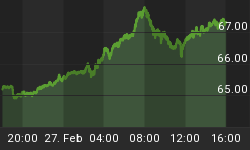Below is an excerpt from a commentary originally posted at www.speculative-investor.com on 19th February 2012.
Although it is a long way from being a mainstream view, over the past two months we've read several comments along the lines of: the financial world will soon be immersed in another 2008-style crisis, only worse. In some cases the commentator went as far as to suggest that the next crisis, which will probably soon begin, will make 2008 look like child's play. What, then, do we think are the odds of a 2008 repeat?
There's a high probability of another major financial crisis happening within the next three years. It is almost inevitable, because debt levels are higher now than they were in 2007 and because governments and central banks have stymied the corrective process with their many interventions. However, there is almost no chance that the next crisis will be similar to the last one, for the reason we cited a number of times during the course of last year in response to the "2008 repeat" forecasts that kept cropping up. Just to quickly recap, the monetary backdrop all but eliminated the potential for a 2008-style crisis last year.
The current monetary backdrop all but eliminates the potential for a 2008-style crisis anytime soon. In fact, a good argument could be made that the probability of a 2008 repeat is even lower now than it was at any time last year. The reason is that up until a couple of months ago the ECB was still implementing a tight monetary policy, thus partially negating the Fed's ultra-easy stance. The ECB has recently fallen into line with the Fed, which should pave the way for a large increase in the rate of euro inflation over the months ahead.
The following chart from Michael Pollaro's blog shows the contrast between the relatively slow rate of global monetary inflation that preceded the 2008 crisis and the current much-higher rate (the chart shows year-over-year rates of change in US$ supply (TMS2), euro supply and Yen supply). The rate of euro inflation is clearly still low, but as noted above it looks set to ramp up over the next few months due to the ECB's recent policy shift.

So, if the next financial crisis won't look anything like the last one, what will it look like?
We can only guess. One possibility is that it will revolve around the disintegration of Europe's monetary union. Another possibility is that it will revolve around a general flight from government debt, including US Treasury debt (today's most popular "safe haven"). Whatever it looks like it will probably involve panic buying of gold and silver, because as time goes by the major central banks of the world are likely to become even quicker to resort to inflation in reaction to economic weakness -- up to the point where inflation is widely perceived to be "public enemy no.1".
Aside from the fact that it helps in the marketing of newsletters and other publications, there isn't any practical value in concocting detailed descriptions of what the 'coming crisis' will entail. Some people are bound to get lucky and guess right, but rather than relying on a lucky guess as to what the future holds in store it is better to rely on real-time analysis. There are always signs along the way that can help you steer in the right direction.
We aren't offering a free trial subscription at this time, but free samples of our work (excerpts from our regular commentaries) can be viewed at: http://www.speculative-investor.com/new/freesamples.html















